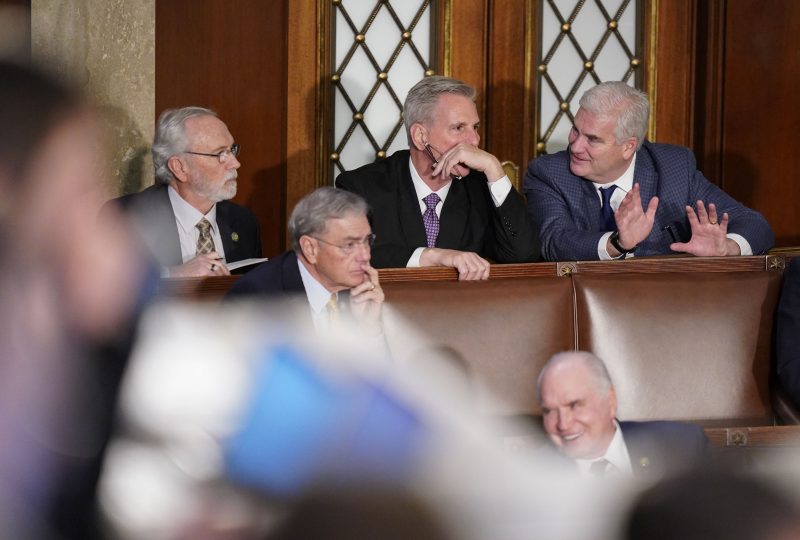
McCarthy makes fresh concessions to try to woo hard-right Republicans in speaker bid
Republican leader Kevin McCarthy has made fresh concessions to a group of 20 lawmakers in hopes of ending their blockade of his speakership ahead of votes Thursday, a stunning reversal that if adopted would weaken the speaker and ensure a tenuous hold on the job.
During late-hour negotiations Wednesday, McCarthy (R-Calif.) agreed to the proposed rule change, according to four people familiar with the talks who spoke on the condition of anonymity to discuss private deliberations.
In a major allowance to the hard-right Republicans, McCarthy offered to lower from five to one the number of members required to sponsor a resolution to force a vote on ousting the speaker — a change that the California Republican had previously said he would not accept.
McCarthy also expressed a willingness to place more members of the conservative Freedom Caucus on the House Rules Committee, which debates legislation before it’s moved to the floor.
And he relented on allowing floor votes to institute term limits on members and to enact specific border policy legislation.
It remained unclear early Thursday whether the concessions could move the holdouts. But some moderates have grown irate at the moves.
McCarthy, the Republican nominee for speaker, has failed six times to secure the necessary votes to become speaker over two days of voting, a stalemate for majority Republicans that highlighted deep divisions within the party and raised questions about whether the GOP can run the House with a slim advantage.
Amid the humiliating defeats in a series of floor votes, McCarthy has struggled to win over the defectors.
In another bid to woo holdouts, the Congressional Leadership Fund, a super PAC endorsed by McCarthy, and the conservative Club for Growth, which had initially signaled opposition to McCarthy as speaker, announced a deal to stay out of open House primaries for safe Republican seats.
During the midterm elections, the CLF worked to elect more moderate Republican candidates considered more willing to govern, an intervention that alienated staunch hard-liners in the Freedom Caucus.
John Wagner contributed to this report.
